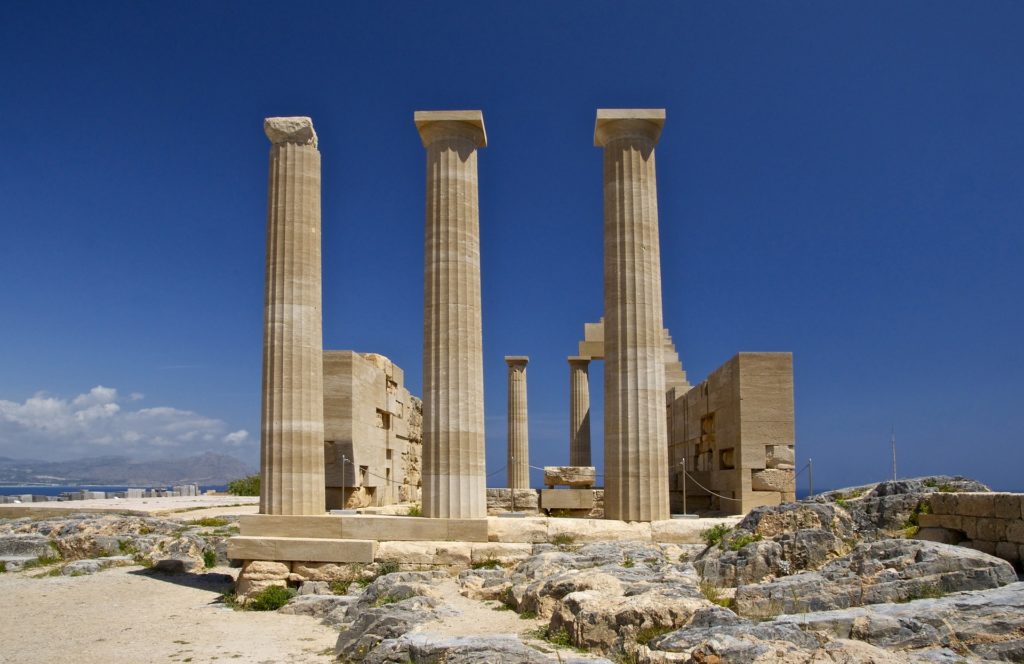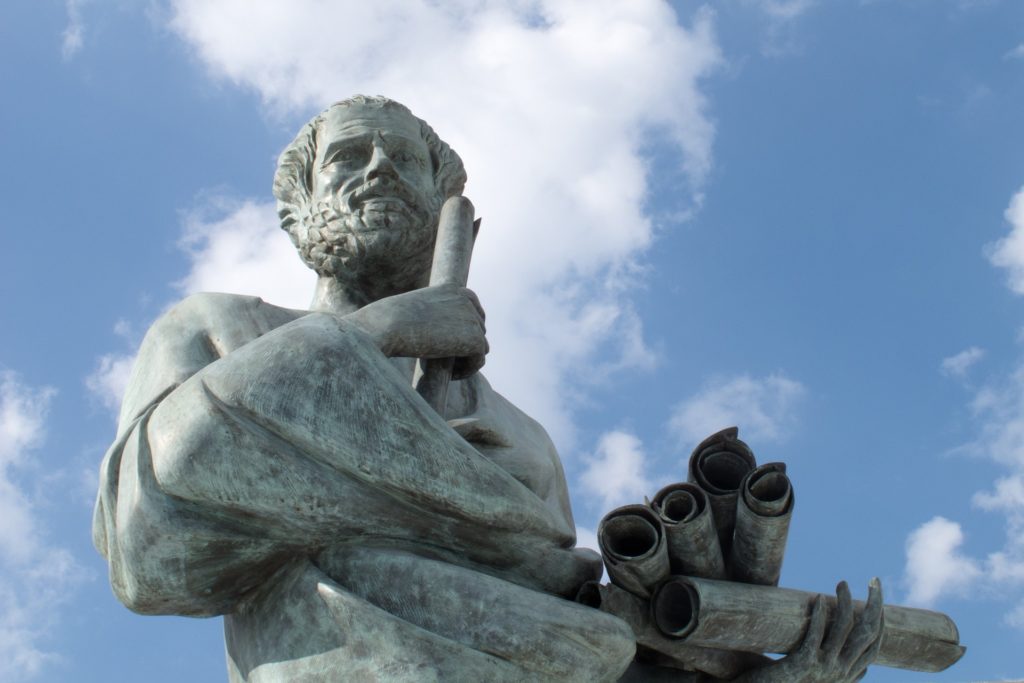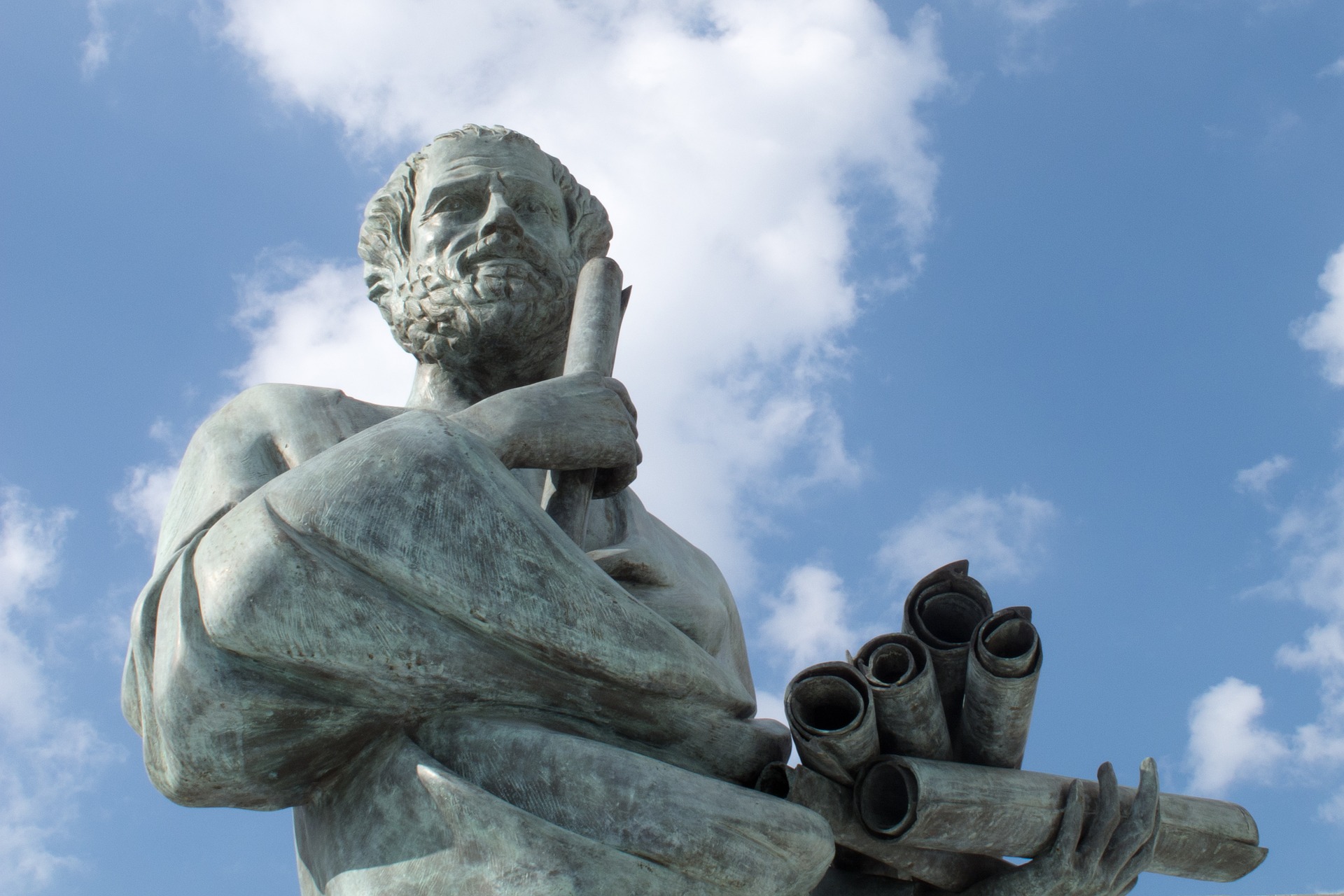Ed. note: This is the fifth entry in a series looking at the three schools of philosophy for perspectives on relationships in our modern world. Inspired by Emerson’s “The American Scholar,” we are exploring timeless wisdom which endures to inform our approaches to learning, relationships and leadership. Click here for all the posts in this series.
Collectively, the Ancient Greeks gave the Western world their foundation. They were the first to document their questions of the world around them in a scientific and systematic way. Rather than examining ethics and the natural world from a religious standpoint, they sought to find truth through methods of empirical observation, logic, and dialogue.

The Greeks modeled a method of actively thinking through (questioning) the implications of a set of ideas. This serves as a model for organizing our thoughts. The value of thinking well cannot be overstated. An individual who can think well is able to communicate more effectively, able to distill their goals and motivations more precisely, and conducts themselves in a more intentional manner. The individual who thinks well is in control of their thoughts, ambitions, and motivations. This translates into fitness goals, business goals, leadership abilities, personal victories, effective and meaningful communication within relationships. Thinking well and ordering your thoughts is the foundation of an intentional and successful lifestyle.
Philosophy
From Thales first asking, “What is the nature of reality? What is the ultimate explanation of all that is?” the discipline of philosophy began to take shape. While the pursuit of truth often entails large, existential questions, the discipline also contributes toward more mundane, daily moments of tranquility. Large or small, the principles we uncover through questioning our processes or problems contribute to our lives in several ways.
First, the answers themselves found when asking questions like, “What makes me happy? What is the purpose of humanity? How is one most useful, or what is the smallest way to be useful?” and so on, can provide us with a direction to take.
Second, the process of thinking through an argument develops a discipline of thought. In other words, your thoughts become more ordered and easy to follow. As an example, listing out the points you want to make in your argument, and the sub-points which add value and fill out the development of the argument is very similar to writing an article or proposal, speech, or any other persuasive media. This development of ideas translates to gaining greater clarity into your motivations and purpose. It also means that your speaking, writing, and communication in general will be orderly and easier to understand.
Third, individuals who know themselves well, and clearly communicate succeed. Introspection, seeking out wisdom, discipline and effective communication to both team members and consumers are the marks of leaders across business, government, and society in general.
Democracy
The notion of philosopher kings was birthed here. The Greeks showed a great respect for moderation, knowledge and education. Out of these values, the concept of democracy came forth.
Democracy is defined as government by the people, exercised directly or through elected representatives. While democracy can fall victim to being romanticized today, Plato held the position that kings should become philosophers or philosophers should be kings. In Plato’s estimation, those who seek truth and wisdom, and exhibit its values, are those best suited to rule over the community.
The value of democracy lies in letting the people make decisions about issues which will affect their lives directly. Laws concerning health, wealth, education, safety and access to such things; all affect the lives of the people and the people should be able to decide what direction to take with them. This, in a necessarily simplistic nutshell, is the promise of democracy; the people rule themselves.
Dialogue and Rhetoric
The disciplines of rhetoric and debate virtually only exist in political, philosophical or legal forums today. Dialogue depicts a conversation between two or more people, and is most commonly associated with Plato. This exercise helps the speaker, their opponent, and audience members all to think through an argument or assertion well, and to uncover or develop solid reasoning for our own conclusions. Part of the art of any philosophical discussion is to clarify terms; meaning to get your audience on board with whatever words you are using. Everyone should know what you mean in the words you choose, and should be able to follow your thought process. While it can be rigorous, dialogue keeps everyone on the same page and the conversation coherent and productive. If there is a leap in logic, the questioner or opponent can ask for a clarification, or step backward, potentially uncovering a bias or assumption. This is critical to produce a quality and logical argument. Again, this is useful in clarifying positions, motivations for writers, leaders, or anyone else trying to create an accurate representation of their position on a given subject.
Rhetoric, or the art of speaking and the power of words, helps us to consider the terms we use to communicate and persuade. The Sophists, Aristotle, Cicero, and others all contributed to the wealth of rhetoric we now look to today. The art of rhetoric is employed in persuasive writing, as well as marketing, and storytelling. It is, quite simply, the power of words to persuade the reader or listener.
The Socratic Method (dialectical argument)
Socrates valued reason and argument, believing it to remind us of our human limitations. His method of questioning to spark critical thinking and uncover leaps in logic or assumptions is valuable in virtually every area of life. Thoughtful questions remain useful when considering our motivations and purposes, but also with goal setting and problem solving; concerns we encounter in everyday life.
Honor
The culture of Ancient Greece operated on honor. The greatest source of prestige or shame was determined by a person’s actions or inactions. This honor, or shame, system was based purely on how a person behaved in light of the morals and values of the group. This is illustrated in Book Six of Homer’s Iliad, where Hector speaks about being unable to show his face at home if he shirks out of duty.
Of course, this hasn’t changed as radically as one might think; society still values moral individuals and groups and “shuns,” or boycotts those who are found in violation. This is perhaps no clearer than in the arena of capitalism, where the morality of companies’ campaigns and social initiatives are judged by the consumer, seemingly on a weekly basis. We hear admonishments to vote with your dollar, and support worthy causes. While virtues and morals differ from person to person, we nearly universally still honor integrity, honesty, and hard-work, thus maintaining a sort of honor culture.
The wisdom of Ancient Greece compels us to look for wisdom and reason to question our motives and get down to the root of whatever issues face us. Then, after this deep introspection, we act with honor choosing the path which seems best to us, and rest in the satisfaction of searching, reasoning, and moving forward with purpose. Wherever we find ourselves needing clarity, the principles of Ancient Greece serve us well in discovering and communicating our own positions.





